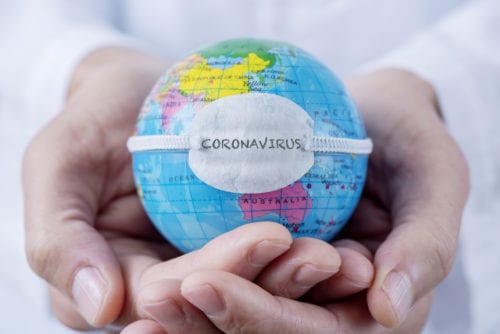closeup of a caucasian doctor man holding a world globe with a protective mask with the word coronavirus written in it

The Critical Role of Subnational Leadership in a Global Crisis
As the coronavirus pandemic spreads across the globe, the collective crisis we are facing right now is unprecedented in recent history. It is affecting the health and wellness of families all over the world, straining medical systems, upending lives, creating massive unemployment, and generating an air of fear and uncertainty.
But the global effort to respond to the coronavirus crisis is a time of rapid learning. One ray of hope is the boldness and effectiveness of local action. At Rocky Mountain Institute (RMI), we’re seeing how the leadership that is emerging in the coronavirus pandemic mirrors the bottom-up leadership we’re seeing on climate action.
Bipartisan leaders on the state, city, and county levels are taking matters into their own hands by implementing bold actions in their jurisdictions to keep people safe and help flatten the curve. These leaders are monitoring national and international decisions and are also influencing those decisions by demonstrating local leadership on how to deal with this crisis.
In response to the coronavirus pandemic, local leaders are issuing “shelter in place” and “stay at home” orders. Currently, approximately 175 million people in 17 states, 26 counties, and 10 cities are being urged to stay home in order to stop the spread of the virus. This local leadership is a necessary and vital aspect to keep people safe and slow the spread of the virus. Likewise, local leadership has been and will continue to be vital in the fight against climate change.
RMI has a long history of working with cities and states on climate and energy issues. Since climate change impacts are felt locally and affect different geographies in different ways and the practical implementation of different greenhouse gas mitigation strategies is different in different places, mayors and governors are stepping up and figuring out what climate actions are most appropriate and effective for their communities.
For example, through the American Cities Climate Challenge Renewables Accelerator, RMI works directly with city leaders around the country to implement and scale their clean energy goals. The We Are Still In movement brings together US cities, states, tribes, businesses, universities, healthcare organizations, faith groups, and others that are committed to supporting climate action to meet the Paris Agreement.
America’s Pledge, a Bloomberg Philanthropies initiative co-led by RMI, analyzes, catalyzes, and showcases how climate action led by states, cities, businesses, and other subnational actors, such as those in the We Are Still In coalition, is driving the United States together toward a low-carbon future.
In December 2019, America’s Pledge released a report laying out a comprehensive US climate strategy. The report details how progress toward a prosperous, low-carbon future can be realized by building on the foundations of existing climate leadership from US states, cities, businesses, and other subnational actors representing 65 percent of the US population and nearly 70 percent of the country’s GDP—and accelerated further still through successful federal re-engagement on climate policies and actions.
And this is not just happening in the United States. National coalitions for climate action—led by state, local, and regional governments; corporations and businesses; academic and cultural institutions; tribal organizations and faith communities; and healthcare institutions—are popping up all over the world including in Mexico, Argentina, South Africa, Vietnam, and Japan.
A key takeaway from the America’s Pledge analysis is that the collective actions of many smaller entities really do add up to globally significant impact. Likewise, the collective actions of many are what it’s going to take for the world to successfully fight against COVID-19.
Based on the leadership we’re seeing at the state and local levels, there are hopeful signs that our collective ingenuity is indeed making an impact. While national governments are necessary in both the fight against the coronavirus and the fight against climate change, local subnational leaders are also crucial.
And no country can do it alone. Both of these fights involve international cooperation as they have global consequences. Despite our different cultures, languages, geographies, and climates, we are all in this together. As the Alliances for Climate Action states, “Everyone must act, but together, we are stronger.”

